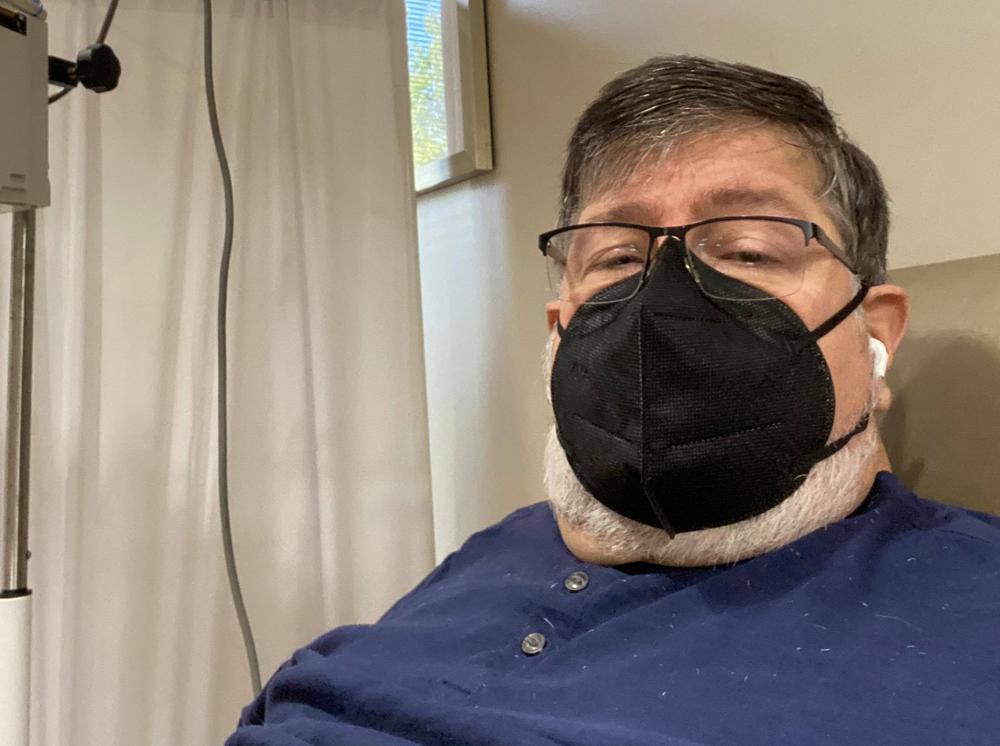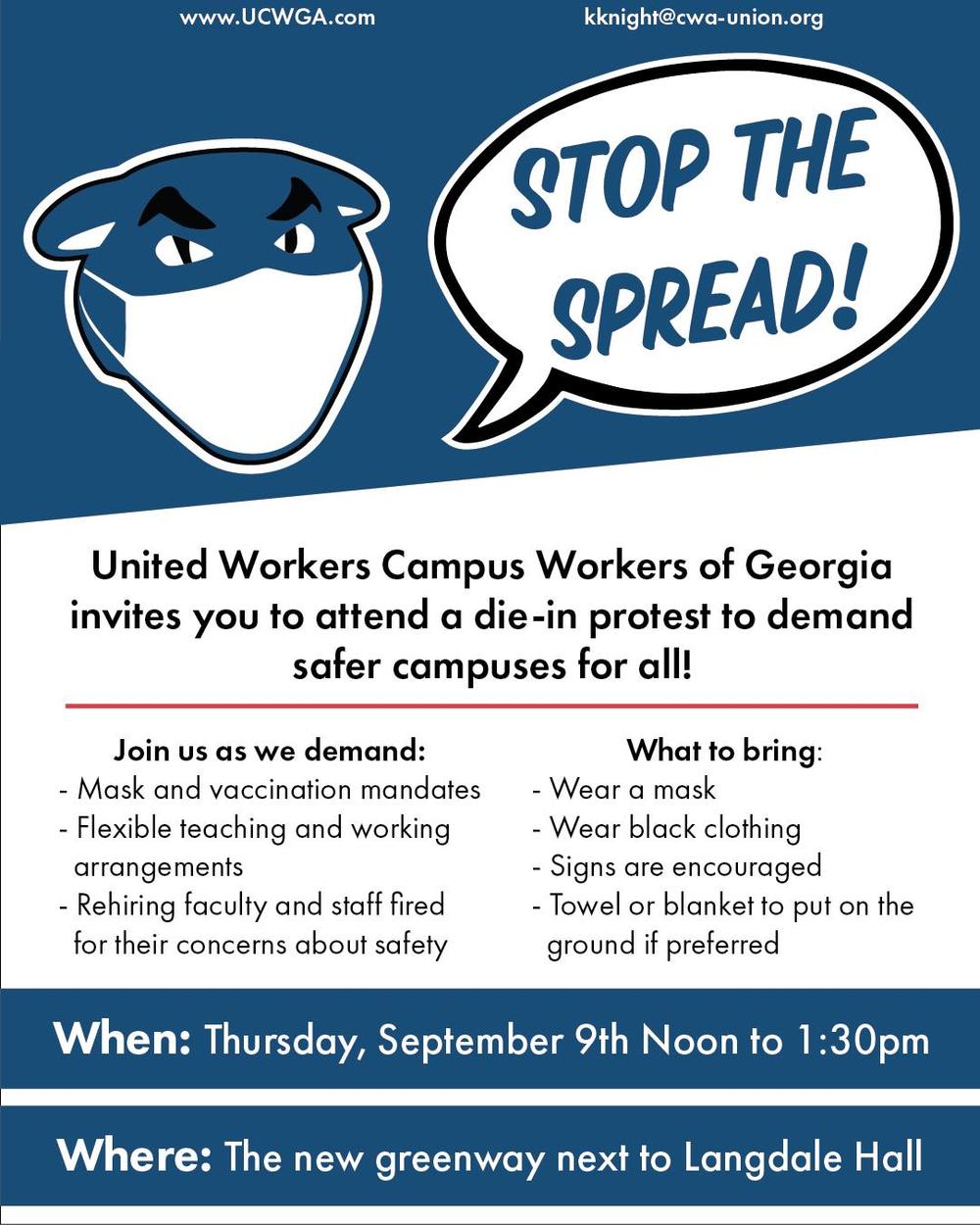
Caption
Dennis Loubiere wears a face mask while receiving an infusion of monoclonal antibodies for COVID-19. The professor believes he contracted the disease on campus, which requires neither masks nor vaccination.
Credit: Contributed
Faculty at colleges and universities in Georgia are protesting the Board of Regents’ COVID-19 policy that says masks cannot be mandatory and classes should be in person. GPB’s Ellen Eldridge reports.

Dennis Loubiere wears a face mask while receiving an infusion of monoclonal antibodies for COVID-19. The professor believes he contracted the disease on campus, which requires neither masks nor vaccination.
Dennis Loubiere thought he did everything correctly. He got vaccinated against COVID-19, maintained physical distance in public and wore a face mask where recommended.
The Kennesaw State University professor taught students virtually over the summer, and decided it would be safe to return to campus for fall classes. He felt comfortable with his decision because the Centers for Disease Control and Prevention said fully vaccinated people no longer needed to mask in public.
He changed his opinion as new COVID cases surged, and he was prevented from taking class online or asking students about vaccination status.
The sentiment is shared — angrily — by many professors and faculty across the University System of Georgia. They want a mask mandate at a minimum.
The current USG policy encourages students, staff and faculty to be vaccinated and wear masks, but doesn't require either measure. Professors also aren't allowed to enforce any additional mandates in their classrooms.
The United Campus Workers of Georgia protested last week at Georgia State University, demanding increased precautions to stop the spread of COVID-19.
They have a “die-in” scheduled Thursday, which is the date of the next Board of Regents meeting.

“This event will highlight the dangers of COVID-19 transmission, particularly with the surge in cases of the highly contagious delta variant,” UCWGA said in an email. “We feel that these dangers are being exacerbated by Board of Regents’ policies.”
UCWGA also plans to protest alongside the Georgia chapter of the American Association of University Professors next week during a week of daily protests on multiple campuses across the state.
Faculty across the state are speaking in one voice, targeting the USG and the Regents, AAUP Georgia President Matthew Boedy said.
Teachers don’t feel protected, Georgia Tech professor Marc Weissburg said.
“The chaos and uncertainty only make things worse,” he said. “That is the direct responsibility of the leadership of the state, and that needs to change.”
The Board of Regents, throughout this entire process, has continued to be hostile and dismissive to the concerns of both students and faculty.
Last year, more than 800 professors, faculty and staff sent an open letter to the Board of Regents that Weissburg said went virtually ignored.
MORE: 'Not Safe': Georgia Tech Faculty Fight Back Against In-Person Classes This Fall
“The Board of Regents, throughout this entire process, has continued to be hostile and dismissive to the concerns of both students and faculty,” Weissburg said.
Now, although COVID-19 cases are higher than at any other time in the pandemic, the precautions have only relaxed further.
Professors including KSU’s Loubiere are scared and frustrated.
When Loubiere tested positive for COVID-19 recently, he thought of his father-in-law's COVID death last December, before vaccines were available. Doctors removed the elder man's oxygen and said he wouldn’t live two hours.
Loubiere’s father-in-law lingered three days in the intensive care unit before he died.
So, when Loubiere started feeling ill and had some symptoms, he got a PCR test.
The 59-year-old believes he contracted COVID on campus — most of the 38 students in his class chose not to wear face masks, Loubiere said. But he also said his biggest concern was for a coworker with cancer.
“If it wouldn't have been for him (the coworker), I probably wouldn't have gotten tested,” he said. “I just didn't want to take a chance … but I could have easily written it off as allergies.”
The lack of communication from the university’s administration about cases angered Loubiere the most, he said.
“My biggest assumption was that, you know, if somebody got COVID in my class, I would be notified,” Loubiere said. “I assumed that when I got COVID, my class would be notified. My class was not notified.”